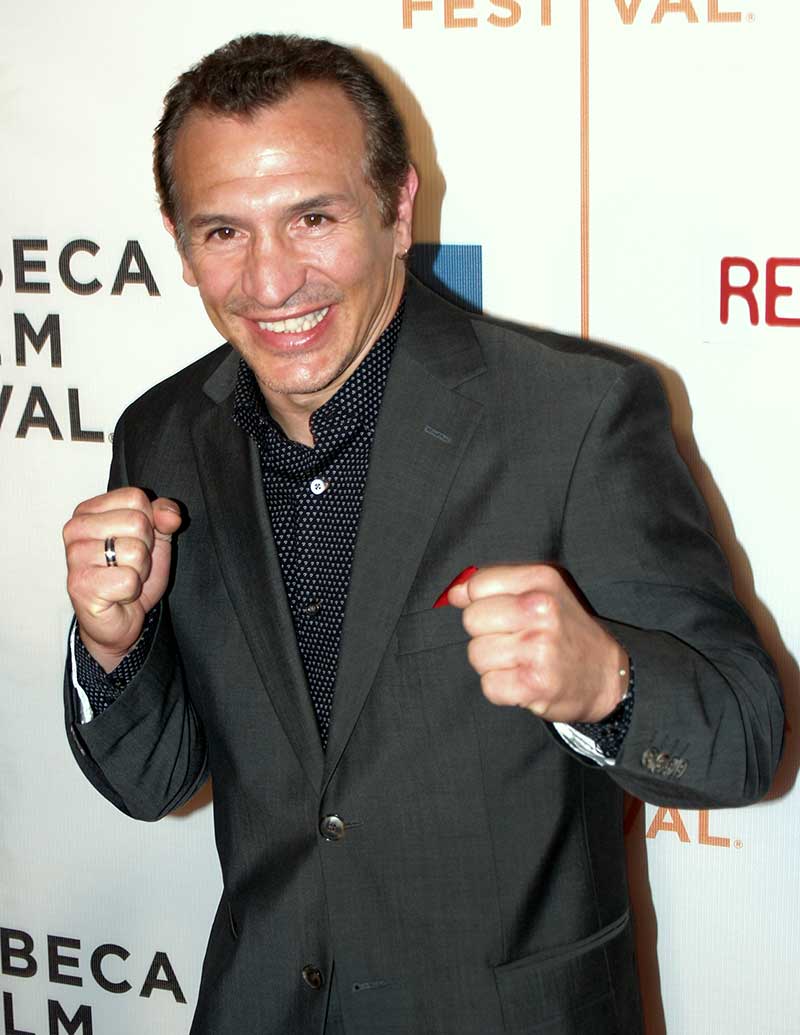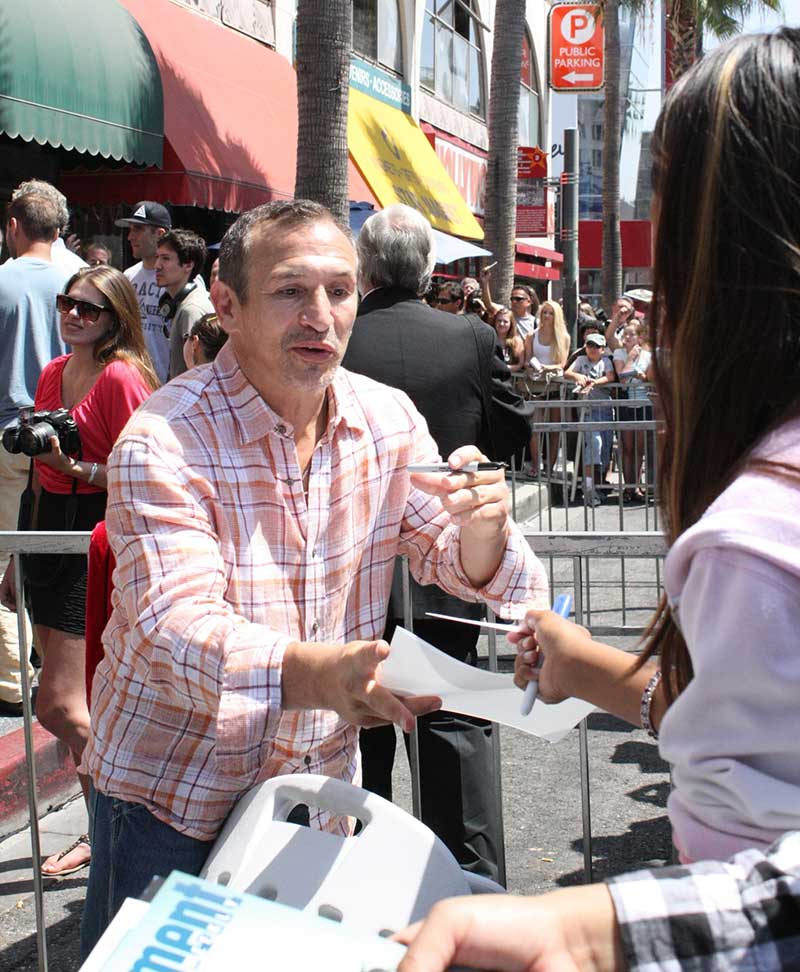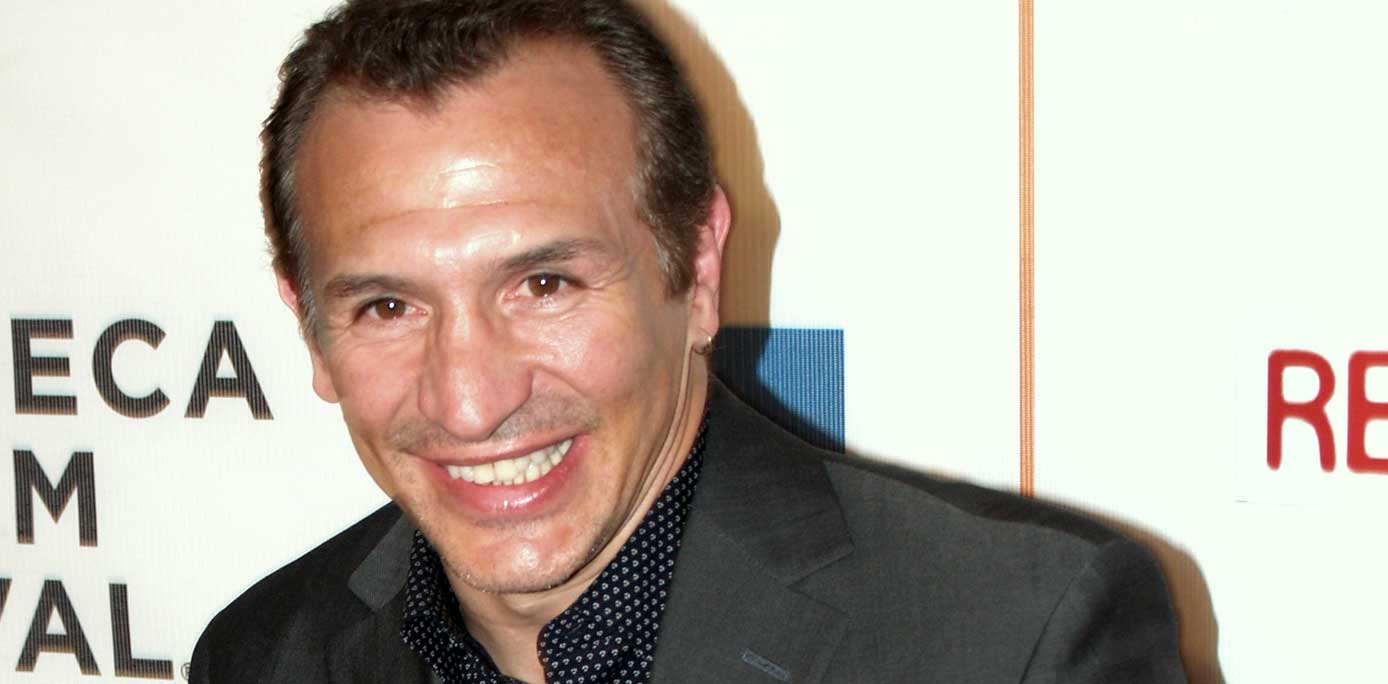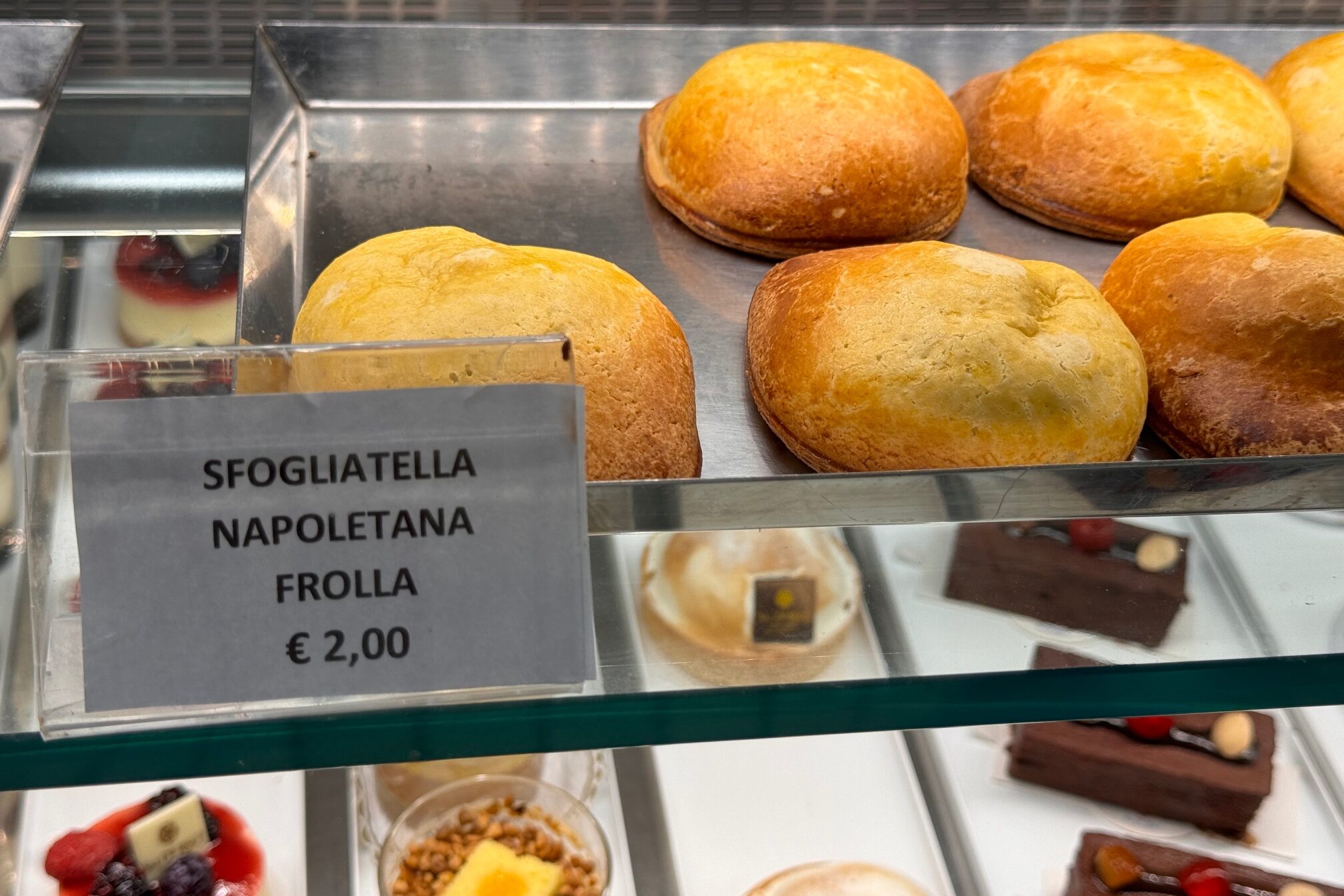When most young boys are shooting hoops or playing catch with their fathers, Ray Boom Boom Mancini stepped into a boxing gym and promised his dad, “One day I’m going to be champion.” As a child, Ray routinely perused his father Lenny Mancini’s scrap book of newspaper articles about his bouts in the 1930s and 1940s and carefully read and reread the aged newsprint. Little Ray was consumed with his dad’s early career that abruptly ended as a result of a serious wound incurred during World War II, which earned him a Purple Heart. In many ways the Youngstown, Ohio, champ lived in his father’s shadows so much that he even took on an unthinkable aspect of Lenny’s identity, his nickname. Typically, one of the many characteristics that separate most father and son athletes from the same sport — or any profession — is their use of nicknames; and yet the Boom Boom moniker embodies the core of Lenny and Ray Mancini’s perennial connection.
Receiving a nickname is what separates us from one another. Appellations are more reflective of our individuality than our official names and are unique to a person’s physical attributes, personality or reputation. Even identical twins usually have different sobriquets. It is rare, almost unheard of, for a son to inherit the exact moniker as his father, and that is what happened with Ray. This, for example, does not mean Big Paulie and Little Paulie or Bobby Sr. and Bobby Jr. Former heavyweight champion and entrepreneur George Foreman has five sons all named George. One of his sons, George III, was given his father’s moniker Monkey, although it was abbreviated to Monk. As George III explained in 2018 to Boston Globe reporter Olivia Vanni, “Monkey is my father’s nickname, given to him by his brothers and sisters but my aunt said we can’t have two monkeys so it just became Monk for short.”

Ray Boom Boom Mancini followed his father’s footsteps, to the point he even inherited his nickname @Wikipedia
The Boom Boom nickname is not exclusive to the pugilist pair. Bernie Geoffrion, a professional hockey player for the Montreal Canadians, was known as Boom Boom, just as New York Mets pitcher Mark Boom Boom Bomback. Professional golfer Fred Couples is known as Boom Boom for his accurate teeing off ability. Then there was the German tennis player Boris Becker, given the sobriquet Boom Boom for his ferocious serves and returns during Grand Slam matches. Around the same time of Becker’s ascent, Ray Mancini was scheduled to fight Kenny Bang Bang Bogner in 1983, but broke his collarbone and the public missed out on the marketability of Boom Boom versus Bang Bang. “The Boom Boom nickname is very much part of my identity” Ray said. “I have been Boom Boom ever since I can remember. In fact in Youngstown most people do not know my first name they call me by my nickname.”
In recent articles about Ray Mancini, Lenny, who passed away in 2003, is referred as the original Boom. Furthermore, while growing-up Ray’s friends called his mother Ellen Mrs. Boom and his youngest son Ray Ray entered a few amateur bouts as Little Boom. He is also associated with Boom Boom Bourbon, which won a bronze medal at the San Francisco World Spirits Competition in 2019. “Even when I go to Italy they call me Boom Boom,” said Ray.
A boxing promoter gave the nickname Boom Boom to Lenny Mancini in the late 1930s. In Mark Kriegel’s The Good Son: The Life of Boom Boom Mancini, he writes, “Boom, Boom Mancini was [Max] Joss’s idea. It was alliterative, catchy and congruent with the style of a fighter the newspapers were now calling the broad shouldered little Italian.” In old newspaper articles Lenny’s nickname, as well as his ethnicity, was published often.
Lenny’s father Nicola Mancino emigrated from Bagheria, Sicily, and his American born mother Annie Cannazzaro’s family hailed from the same village. Mancino, which means left-handed in Italian, was changed to Mancini for, once again, promoters thought that Lenny’s name needed to sound catchier. For the American born Lenny the slight name change from one vowel to another was harmless, considering some name changes completely transformed one’s ethnic identity. Lenny, a very proud Italo American (as well as Ray) took more of a stance against the alteration of his distinctive moniker.

Ray signing autographs at Walk of Fame ceremony © Turkbug | Dreamstime.com
In 1945 United Press sports writer Jack Cuddy suggested to Lenny upon his comeback into the ring from World War II the possibility of a moniker change to Triple Boom, or Boom Boom Boom. In a newspaper article titled Lenny Mancini Frowns on Suggestions Ring Nickname be Changed, Cuddy wrote, “Mancini, top lightweight contender when he entered the war in 1941, objects to the idea of the third Boom given to him by the Germans last November 10 during fierce fighting in Metz, France.” The article explained how Lenny was struck by a German mortar shell that seriously injured him and forced the promising boxer to remain in the hospital for several months. The idea of a moniker change went no further among sports writers and, thereafter, the five-foot three-inch pugilist never fully recovered from his war injuries, which forced him to retire from boxing.
Ray, touched by his father’s heroic story, had an unbounding determination to achieve what his dad was unable to accomplish from the war injury, a chance at a title fight. The bond between Lenny and his son was undeniable and expressed in Ray’s poem I Walk in Your Shadow, written in 1976 for his dad on Father’s Day, prior to him turning pro in 1978. In the last stanza Ray writes,
“I love you dad and I really want you to know,
I wanna be like you and walk in your shadow.
I wanna be like you and live with your great name,
for I am this man’s son and I will never bear him shame.”
In 1982 Ray Mancini made his father proud and won the World Boxing Association (WBA) title. He brought the “great name” Mancini and shared moniker to a new level in boxing. Ray admired his dad and always listened to the original Boom. “My father always said, Raymond have passion in what you do and everyone likes a stand-up guy who has character, and I try to live by his words every day,” said the almost fifty-eight year old retired champ.
The Mancini duo may be the only, or at least one of the few, to share the same moniker from the same sport: perhaps a trivial point some would say, but one that truly sets them apart from most fathers and sons.
Mentre la maggior parte dei ragazzi tirano a canestro o giocano a palla con i propri padri, Ray Boom Boom Mancini entra in una palestra di pugilato e promette al padre: “Un giorno diventerò un campione”. Da bambino, Ray sfogliava abitualmente l’album degli articoli di giornale di suo padre Lenny Mancini sugli incontri degli anni ’30 e ’40 e leggeva e rileggeva attentamente la vecchia carta del giornale. Il piccolo Ray fu segnato dall’inizio della carriera del padre che si concluse bruscamente a causa di una grave ferita subita durante la seconda guerra mondiale, che gli valse un Purple Heart. Per molti versi il campione di Youngstown, Ohio, ha vissuto all’ombra del padre al punto da assumere un aspetto impensabile dell’identità di Lenny: il suo soprannome. In genere, una delle tante caratteristiche che separano la maggior parte degli atleti, padre e figlio, che praticano lo stesso sport – o una qualsiasi professione – è l’uso dei soprannomi; eppure il soprannome Boom Boom incarna il nucleo centrale del perenne legame tra Lenny e Ray Mancini.
Avere un soprannome è ciò che ci separa l’uno dall’altro. E’ qualcosa che riflette la nostra individualità molto più dei nostri nomi ufficiali e gli appellativi sono unici per gli attributi fisici, la personalità o la reputazione di una persona. Anche gemelli identici di solito hanno soprannomi diversi. È raro, quasi inedito, che un figlio erediti l’esatto soprannome di suo padre, ma è quello che è successo a Ray. Questo, per esempio, non significa Big Paulie e Little Paulie o Bobby Sr. e Bobby Jr. L’ex campione dei pesi massimi e imprenditore George Foreman ha cinque figli tutti di nome George. Ad uno dei suoi figli, George III, è stato dato il soprannome di suo padre, Monkey, anche se è stato abbreviato in Monk. Come spiegò Giorgio III nel 2018 alla giornalista del Boston Globe Olivia Vanni, “scimmia è il soprannome di mio padre, datogli dai suoi fratelli e sorelle, ma mia zia ha detto che non si possono avere due scimmie, quindi una si è accorciata in Monk”.
Il soprannome Boom Boom non è esclusivo della coppia pugilistica. Bernie Geoffrion, giocatore professionista di hockey per i canadesi del Montreal, era conosciuto come Boom Boom, proprio come il lanciatore dei New York Mets Mark Boom Boom Bomback. Il golfista professionista Fred Couples è conosciuto come Boom Boom per la sua accurata abilità nel teeing off. Poi c’era il tennista tedesco Boris Becker, chiamato Boom Boom per i suoi potenti servizi e colpi durante le partite del Grande Slam. Nello stesso periodo dell’ascesa di Becker, Ray Mancini ha dovuto combattere con Kenny Bang Bang Bogner nel 1983, ma si è rotto la clavicola e il pubblico ha perso l’occasione del Boom Boom contro Bang Bang. “Il soprannome Boom Boom fa parte della mia identità” disse Ray. “Sono stato Boom Boom da quando riesco a ricordare. Infatti a Youngstown la maggior parte delle persone non conosce il mio nome e mi chiamano con il mio soprannome”.
In recenti articoli su Ray Mancini, Lenny, scomparso nel 2003, viene definito il Boom originale. Inoltre, mentre crescevano, gli amici di Ray chiamavano sua madre Ellen Mrs. Boom e suo figlio più giovane Ray Ray poi entrato in alcuni incontri amatoriali come Little Boom. È anche associato a Boom Boom Bourbon, che ha vinto una medaglia di bronzo al San Francisco World Spirits Competition nel 2019. “Anche quando vado in Italia mi chiamavano Boom Boom”, ha detto Ray.
Un promotore di boxe ha dato il soprannome di Boom Boom a Lenny Mancini alla fine degli anni ’30 del secolo scorso. In The Good Son: The Life of Boom Boom Mancini, di Mark Kriegel, scrive: “Boom, Boom Mancini è stata un’idea di (Max) Joss. Era alliterativo, orecchiabile e congruente con lo stile di un combattente che i giornali chiamavano il piccolo italiano a spalla larga”. In vecchi articoli di giornale il soprannome di Lenny, così come la sua etnia, è stato pubblicato spesso.
Il padre di Lenny, Nicola Mancino, era emigrato da Bagheria, in Sicilia, e la famiglia di sua madre americana, Annie Cannazzaro, era originaria dello stesso villaggio. Mancino, che significa mancino in italiano, è stato cambiato in Mancini, perché, ancora una volta, i promotori pensavano che il nome di Lenny dovesse suonare più accattivante. Per l’americano di nascita Lenny il leggero cambio di nome da una vocale all’altra risultò innocuo, considerando che alcuni cambiamenti di nome trasformavano completamente la propria identità etnica. Lenny, orgoglioso italo-americano (così come Ray) prese posizione più che altro contro l’alterazione del suo caratteristico soprannome.
Nel 1945 lo scrittore sportivo della United Press, Jack Cuddy, suggerì a Lenny, al suo ritorno sul ring dopo la seconda guerra mondiale, la possibilità di un cambio di soprannome in Triplo Boom, o Boom Boom Boom. In un articolo di giornale intitolato Lenny Mancini Frowns on Suggestions Ring Nickname be Changed, Cuddy scrisse: “Mancini, il miglior peso leggero quando entrò in guerra nel 1941, si oppone all’idea del terzo Boom che gli è stato dato dai tedeschi il 10 novembre scorso durante i feroci combattimenti a Metz, in Francia”. L’articolo spiega come Lenny era stato colpito da un colpo di mortaio tedesco che lo aveva ferito gravemente costringendo il promettente pugile a rimanere in ospedale per diversi mesi. L’idea di un cambio di soprannome non andò oltre tra gli scrittori sportivi e, successivamente, il pugile di cinque piedi e tre pollici non si riprese mai completamente dalle ferite di guerra, cosa che lo costrinse a ritirarsi dalla boxe.
Ray, toccato dall’eroica storia di suo padre, aveva una determinazione senza limiti per ottenere ciò che suo padre non era stato in grado di raggiungere per la ferita di guerra, una possibilità nella lotta per il titolo. Il legame tra Lenny e suo figlio era innegabile ed espresso nella poesia di Ray I Walk in Your Shadow, scritta nel 1976 per suo padre in occasione della festa del papà, prima che diventasse professionista nel 1978. Nell’ultima strofa Ray scrive,
“Ti voglio bene, papà, e voglio davvero che tu lo sappia,
Voglio essere come te e camminare nella tua ombra.
Voglio essere come te e vivere con il tuo grande nome,
perche’ sono il figlio di quest’uomo e non avrò mai vergogna di te”.
Nel 1982 Ray Mancini rese orgoglioso suo padre e vinse il titolo della World Boxing Association (WBA). Portò il “grande nome” dei Mancini e il suo soprannome ad un nuovo livello nella boxe. Ray ammirava suo padre e ascoltava sempre il Boom originale. “Mio padre diceva sempre, Raymond ha passione in quello che fa e a tutti piace un ragazzo che ha carattere, e io cerco di vivere ogni giorno secondo le sue parole”, diceva il quasi cinquantottenne campione in pensione.
Il duo dei Mancini può essere l’unico, o almeno uno dei pochi, a condividere lo stesso soprannome nello stesso sport: forse una questione banale potrà dire qualcuno, ma che li distingue davvero dalla maggior parte dei padri e dei figli.
































